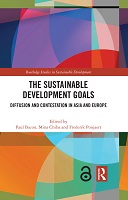Chapter 7 Diffusion of inclusive education in Malawi
Proposal review
Abstract
This chapter discusses and analyzes the diffusion of the inclusive education concept as a norm of educational policy in developing countries by taking up primary school system in Malawi as a case. For the last two decades, international trends in education for pupils with disabilities have been shifting from “special” or “integrated” education to “inclusive education”. Inclusive education was originally launched through the Salamanca Statement, adopted at the World Conference on Special Needs Education in 1994. Adoption and widespread ratification of the 2006 Convention on the Rights of Persons with Disabilities provides the legal basis for this concept. Also, the SDGs, which embrace “inclusive” as a key term in the overarching Goal 4, significantly promote the diffusion of this concept in educational policies in both developed and developing countries. Our research is based on extensive fieldwork; seven classroom observations, 137 questionnaires and numerous interviews with key stakeholders including teachers, principals and parents. Based on this data analysis, the chapter discusses the complexity of diffusion of the norm of inclusive education from international to national, national to local, and suggests a more careful promotion of the new concept in educational practices, while fully acknowledging the achievement and potentials of inclusive education.
Keywords
education for sustainability, global governance, norms, SDGs, wellbeing discourseDOI
10.4324/ 9781003205951-10ISBN
9781032072180, 9781032072197, 9781003205951Publisher
Taylor & FrancisPublisher website
https://taylorandfrancis.com/Publication date and place
2023Grantor
Imprint
RoutledgeClassification
Business and Management
Educational strategies and policy
Central / national / federal government policies
Regional and area planning


 Download
Download